|
This current COVID-19 crisis has shaken up the end of the semester even more than most students could have even imagined. Since my university went online through the rest of the semester, so much has changed: events and programs that were being planned since last school year have been canceled; fun outdoor adventures with the onset of spring are postponed; classes have transitioned to completely online settings. The way I would best sum up this time is unexpected significant change. But this change can lead to many ways of unexpected growth while adjusting to this new normal for the foreseeable future.
These couple of weeks adjusting to the world of online classes has allowed me to take some time and reflect on the past, present, and future. In college, time seems to fly and changes that occur over time sometimes just seem to pop up. Yet in these weeks of change, time hasn’t been flying by, and things aren’t happening as smoothly, but that’s okay – it’s perfectly fine if adjusting to this new normal takes longer than it may have at college. In my reflecting, a few thoughts stuck with me as particularly helpful in this unexpected journey:
From the time this COVID-19 pandemic first began to alter life in February, one particular prayer has been an unending source of peace for me. It is called the Serenity Prayer: “God, grant me the serenity to accept the things I cannot change, the courage to change the things I can, and the wisdom to know the difference.” Jonathan Harrison is a Program Associate for the Catholic Apostolate Center and a student at The Catholic University of America studying biochemistry and theology with a certificate in pastoral ministry.
0 Comments
As a PhD student, there are often many moments where I find myself buried under work, exhausted from studying, and wondering if subjecting myself to a five year program of studying, teaching, and writing is worth it. Although I love what I study and find it extremely life-giving, there are plenty of moments when I’ve felt hopeless, isolated, and anxious about a future career in academia. This past year, I found myself struggling in the midst of my third semester in my program. I felt emotionally and mentally exhausted by the demands of being a second-year student and teaching assistant. Frustrated, worried, and tired, I made an appointment with one of my professors, hoping that venting to someone who understands the challenges of academia might at least help somewhat. As I vented about my anxieties of being an effective teaching assistant, distinguished student, and successful future academic, my professor patiently listened. Even as my concrete worries about grading and lecturing for the first time began to turn into catastrophizing about never being hired at a college or university, my professor sat with me until I finished talking. She never minimized my feelings or invalidated my emotions. Instead, she shared with me her own challenges that she faced as a graduate student. Through stories about her own experiences, she admitted that she had been where I was, too. My professor didn’t let the conversation remain at a place of despair; she instead encouraged me to look at the bigger picture in all of these difficulties: God’s plan for each of us. She challenged me to think about my own vocation to be a graduate student and reminded me that it was God’s will that I was here. My professor helped me to see that despite my anxiety and worry, I was not alone. Not only did I have her support and the support of others at my university, but my present and future rested in the hands of my Creator. She also helped me notice places in my life where I was successful, and suggested places where I could become stronger. After talking about my strengths and areas of improvement, she offered advice, pointed me to other people that might also help, and offered to continue the conversation whenever I needed it. I left encouraged, feeling supported, and with a new perspective on my life as a graduate student. When I first scheduled my meeting with my professor, I had only expected to give voice to my worries to someone who knew what I was talking about; however, when I left my meeting, I felt that I was no longer walking alone on my path. My professor was walking with me, accompanying me on my journey as a graduate student. Upon later reflection, this moment of accompaniment shared with my professor reminded me of Jesus’ own style of accompaniment on the Road to Emmaus (Luke 24:13-35). Like the disciples who were dejected, disillusioned, and confused about the events that had taken place in Jerusalem surrounding Jesus’ death, I too was anxious about my own life as a graduate student. My professor offered a presence of patient listening, even when my worries began spiraling into despair. Instead of invalidating my response to the challenges of my life, my professor, like Jesus, “drew near” (Luke 24:15) to me by sharing with me her own difficulties as a graduate student. My professor also helped me to shift my perspective. She imitated Jesus on the Road to Emmaus by reminding me of God’s role and plan in my life, encouraging me to look beyond the challenges of the present moment. Finally, my professor helped me to remember my own sense of mission and vocation, and move actively towards them. As Jesus interpreted the scriptures with the travelers on the way (Luke: 24:27), my professor assisted me in reading God’s revelation in my own life through my strengths and weaknesses, encouraging me to develop and strengthen my gifts in order to respond to God’s call. As Jesus walked with the disciples towards a definitive direction, my professor was walking with me towards a certain goal: greater trust in God and more freedom from anxiety in order to live out my vocation. After this moment of accompaniment with my professor, I continued on my path as a graduate student with a new sense of support and encouragement. Like the disciples after their own powerful encounter of accompaniment with Christ, I too returned to my own mission as a graduate student, but with renewed hope and enthusiasm. My experience of being accompanied by my professor made a significant impact on the way I think about my own life and vocation. In that simple meeting, my professor reminded me that no one lives out their vocation and personal mission in isolation. Instead, we need one another on this pilgrimage towards full realization of being the beloved of Christ. Accompaniment allows us to walk together towards Christ; it turns the challenges of the journey into opportunities to discover God’s love with and through one another. Who might accompany you on your journey towards Christ? How can you accompany others through challenges that you’ve faced? For more resources on mentorship and accompaniment, please click here.
“GO, GONZAGA, G-O-N-Z-A-G-A!”
In recent memory, the basketball arena at Gonzaga University has been filled with that chant every season. Students and alumni alike gather together to celebrate their team, especially in March. People are excited—as they should be! Gonzaga is a Jesuit University in Spokane, Washington that is very well known for its basketball team. Every time they’ve made it to March Madness, there are always some commentators who ask, “Is it pronounced Gone-ZAY-ga, Gone-ZAH-ga, or gone-ZAG-uh” (it’s the latter, by the way). While Gonzaga is a great university and a great team, something that is often overlooked about the university is the great man for whom it is named. A man who, assuredly, would find it madness how many people are chanting his name every March. St. Aloysius Gonzaga, or “Luigi,” was born in Spain to an aristocratic family. As the first-born son, Luigi was raised to eventually inherit the entirety of his father’s fortune. Everything provided for him already, he was not required to work for a living. Instead, he was sent to the royal court at age ten to prepare for a life in the aristocracy. Yet, while serving the court, he saw the ways of nobility—filled with backstabbing, sex, and so many more things—and they seemed to him disgusting and vile. Exposed to and repulsed by these things, he vowed to God to never sin again. Little Luigi began to read in the family chapel at court about the lives of the saints. At the age of 11, he read a book about the Jesuits, who brought the Gospel to India. Luigi felt invigorated. He too wanted to bring the Good News to India or Africa with the Jesuits. Even with the aristocracy all attempting to convince him to stay, and his father threatening violence, Luigi left home at 17 to go to Rome and join the Society of Jesus. Six years later, he was dead. Luigi had been sent on mission—but not to India, or Africa, or even anywhere outside of Italy. He died after being sent to help the people, plague-ridden and dying, on the streets of Rome. While he was never ordained a priest, the epic journey of preaching the Gospel that Aloysius Gonzaga had dreamed about as a child did happen for him on the streets of his adopted home. Although young Luigi dreamed of serving the Lord in faraway, impoverish nations, the Lord showed him that even the people right outside of our windows need the Gospel. When we strive to live the Gospel, we must ask ourselves: have I shown the love of Christ to those around me? To my housemates and family members, to my neighbors a couple doors down? To those in my community? Not all missionary disciples are called to board a plane and serve abroad. Where ever our vocation takes us, we are called to be missionaries of Christ throughout our daily lives. Aloysius Gonzaga was beatified fourteen years after his death for his heroic virtue, which he demonstrated through his chosen life of simplicity and trust in the Lord. Maybe it is appropriate that we chant his name every year—and maybe we can all imitate the Gonzaga who gave up his servants to be one himself.
At some point during my time as a college student, I encountered the great saint and medieval theologian St. Thomas Aquinas (1225-1274), and began to realize just how truly important and vast was his intellectual impact in history. As a witness to the profound and enduring quality of Thomas’ theological insight and teaching, the Catholic Church honors him with the title “Doctor of the Church.” Thomas certainly spent much of his life in a classroom teaching and debating on the most relevant questions of his day. But when it came to his primary vocation as a Christian, the soft-spoken saint would be quick to point out that he was first and foremost a student. The word disciple literally means “learner” or “student.” In the Bible, a disciple is, “A student or follower who emulates the example set by a master and seeks to identify with the master’s teachings.” (Catholic Bible Dictionary, ed. Scott Hahn) For Thomas, discipleship meant being an entirely devoted student of Jesus Christ. One of Thomas’ theological principles was that everything Jesus said and did was meant for our imitation and instruction. In the time of Jesus, a disciple did not just learn from, but learned to be like their teacher. We see this, for example, at the Sermon on the Mount, which is an extended lesson about a radically new vision for life received at the feet of their teacher (“Rabbi”), Jesus. Today, the Church’s emphasis on the New Evangelization to make and grow as disciples also means we are to become in every way students of Jesus. Here are three important ways Aquinas modeled being a student of Jesus, a disciple, worthy of our imitation. A Student of Scripture For Thomas, Sacred Scripture makes known “that heart of Christ” (see CCC 112), and we acquire that heart gradually by reading and studying the Bible. In addition to composing many commentaries on individual books of the Bible, all of Thomas’ writings demonstrate a life soaked in a love and knowledge of Holy Scripture. Thomas realized the impossibility of growing as disciples of Jesus apart from familiarity with the living Word of God. A Student of Prayer Even with a multitude of followers and demands, Jesus was frequently found in personal prayer with the Father. Similarly, as prolific a writer as Thomas was, Thomas never sacrificed his time of prayer and contemplation for the sake of work or greater productivity. As a result, aside from his dense technical writings in theology, Thomas composed captivating prayers that the Church uses in liturgy and devotions even today. Thomas loved to pray through song, and among his most well known prayers include the famous Eucharistic hymns “O Salutaris,” “Tantum Ergo,” and “Adoro Te Devote.” A Student of Truth Jesus is the Truth (John 14:6). In a culture saturated with opinion and often biased news, we can learn from Thomas’ unceasing search for truth. A love of the truth compelled Thomas to devote himself to understanding the world around him (even where he disagreed), to be slow to judge, quick to learn, but steadfast in his convictions and trust in Jesus. Whether you are in school or beyond, Thomas models what it means for a disciple to seek the truth. That could mean doing more research about our opinions, being more willing to have our perspective challenged, or just trying to learn something new every day. Thomas even has a great Prayer for Students that we can all apply to whatever situation Jesus is calling us to keep learning about. To learn more about prayer, please click here. Today we are re-posting a blog from our archives on the many ways we can use prayer to communicate with God. Consider adopting one of these forms of prayer into your weekly routine as you strive to strengthen your relationship with the Lord.
10/8/2015 In a classroom of 25 students, sometimes it gets a little noisy. Just simply saying, “In the name of the Father, and of the Son…” in my Catholic school can quiet a room faster than the loudest bell or my scariest tone of voice. Students can begin the day with prayer, end it with prayer, and say it before meals. However, prayer in a student’s life can come in many forms. Rejoice always, pray continually, give thanks in all circumstances; for this is God’s will for you in Christ Jesus. (1 Thes 5:16-18) In my school, we try and encourage our students to “find God in all things.” This is a beautiful way to appreciate God’s creation and look for Him throughout our lives in the people we meet, places we go, and in everything we do. For second graders, these moments of thankfulness can be tricky to find, but when they discover that it can be as easy as thinking, “Thank you God for the opportunity to be in school today and learn about volcanoes,” the difficulty fades away. Then you will call on me and come and pray to me, and I will listen to you. (Jer 29:12) Another form of prayer I use in my classroom is silent reflection. Responses vary from boredom to feeling peace. I remind the children that prayer is a chance to talk to God about something or sit in the silence and listen for God talk to them. This quiet peace is what helps us reinvigorate our afternoons for more learning! This is the confidence we have in approaching God: that if we ask anything according to his will, he hears us. (1 John 5:14) Recently, journaling has been my students’ favorite form of prayer. We handed out small prayer journals so that each student could write prayers from the heart to God. Letting them know their writing is private and personal was a crucial part to helping them understand that prayer can be an intimate conversation with the Lord about anything and everything. Children learn about prayer from those closest to them, so for those who have children, I challenge you: be a role model in prayer. Take just a few moments in a day, especially with your child, and pray. ■ The Lord’s Prayer is a good place to start if you don’t know what to say! ■ The Rosary is a beautiful way to ask Mother Mary to intercede for us on a regular basis. ■ The Serenity Prayer is a lifesaver for me sometimes, it helps me think about what things in life I can change and what things I cannot solve! It is a truly beautiful prayer to memorize. My students may not realize it now, but one day (hopefully soon) this whole “prayer thing” may click for them. All the eye-rolling and goofing-around may one day stop. If only for a moment, my second graders may actually feel the presence of God. For a moment, they might believe God is answering a prayer request they made. They may earnestly thank the Lord for the day they’ve just had. These many forms of prayer that are presented to them throughout the day may click, hopefully in such a way that they might even try to pray on their own. For more resources on Prayer and Catechesis, please visit http://www.catholicapostolatecenter.org/prayer--catechesis.html. Originally published on 10/8/2015. As emerging adults in the Catholic Church many times we are asked the question why are you Catholic? or why do you remain Catholic? Sometimes asked from friends who fell away and sometimes asked by others in the Church that are surprised to see you present and active. We, as a Center, would like to share with you, at the end of each month, why we are Catholic and where it is that we find joy in our faith.
“We are an Easter people and ‘Alleluia’ is our song!” -St. Augustine of Hippo I first heard this quote several years ago, but it wasn’t until recently that I began to understand it more fully. Some of you may be wondering why I am writing about Easter in October, but this is exactly my point! We arealways an Easter people, and we should constantly direct ourselves towards the joy of the Resurrection! Nothing orients one towards Easter quite like participating in RCIA. This year, for the first time, I am helping to prepare catechumens, candidates, and confirmandi for full initiation into the Church during the Easter Vigil mass. This group is distinct from other RCIA groups because it is composed entirely of college students, both graduate and undergraduate, who are studying at the Catholic University of America in Washington, D.C. Every Thursday night, the ten or twelve students come together to learn about the faith through catechetical sessions presented by a member of the theology faculty or one of the chaplains of the university. Some students come straight from rugby practice, others from study sessions in the library, and a few grad students sacrifice time away from their young families to join us. What brings them all together in the campus ministry lounge on Thursday nights is a nascent love for the Church and a deep desire for the grace imparted through her sacraments. To put it simply, even in October they are oriented towards the joy of Easter. The Second Vatican Council’s Pastoral Constitution on the Church in the Modern World (Gaudium et Spes) opens with the following words: The joys and the hopes, the griefs and the anxieties of the men of this age, especially those who are poor or in any way afflicted, these are the joys and hopes, the griefs and anxieties of the followers of Christ. Indeed, nothing genuinely human fails to raise an echo in their hearts. In the next few days, the Church celebrates not only the joy of “All Saints” and the hope of “All Souls,” but we also share in the sorrow of the families and communities whom the faithful departed have left behind. It is this sense of community that calls others into the fold. As members of the Church we are called to share in the burdens of our fellow man, but we do so with the recognition of what God-made-man has already done for us. However heavy our loads, we have hope in Christ who shouldered all of our burdens and sacrificed himself for our sins. We share the grief of others because Christ has shared in our grief; but we must also share the hope and joy that we have in Him . . . the same hope and joy that brings twelve college students together for an hour each week on a busy school night to reflect upon the beauty of our faith. Where do I find joy? In the catechumens who long for Easter – even in October! – and yearn to become members of our community of faith. Leave it to the neophytes in the faith to teach us something about Christian joy! Easter in October? I’m all for it! Brett Garland is a Collaborator with the Catholic Apostolate Center. This post was originally published by the Catholic Apostolate Center in October 2012 "With all vigilance guard your heart, for in it are the sources of life."
-Proverbs 4:23 When I was first hired to teach at my high school and was told I was going to be teaching social justice, I was very excited. I had learned a lot from different teachers over the years about social justice issues plaguing our society and I wanted to ignite a fire in my students that they could make a difference and impact society. I knew it was going to be a challenging topic to teach, especially to high school students, but I never realized the toll it would have on me. Halfway through my first year of teaching, one of my students handed me a post it note with Proverbs 4:23 written on it. The interpretation she had written was “Above all else, guard your heart. For everything you do flows from it.” It took me some time to realize what she was trying to tell me through this passage, but once I realized what she meant it changed my thinking and my outlook on what I was teaching and the world around me. Some of the topics we cover are racism, prejudice, and poverty. I very quickly realized that in order to make the girls aware of the problems in the world around them, I had to bring in real world examples. At the beginning of every class, my students were invited to bring in news articles or experiences of their own that related back to the topic. I would also research different events or issues myself. After reading and hearing somewhere around 100 different examples of where our society has gone wrong and how we are hurting each other, I began to get a sense of hopelessness. My heart began to hurt because we have so many solutions on how to make our society better, and still nothing ever gets done. It reached a point that I didn’t think society would ever change and I started to stop believing in what I was teaching. Every morning we wake up and turn on the news and see news report after news report of our society tearing each other apart and forgetting the value that each one of us has. That kind of destruction and hurt takes a toll on you; especially your heart, and can make you feel helpless. My student recognized what was happening to my heart and saw me breaking after every news report and life experience I heard in class. She left me this note to remind me that despite the world we are living in, we have to guard our hearts because that is where your drive and spirit comes from. She showed me that if I protect my heart and keep faith and hope in God and the world he created, things could get better. It is really easy to lose faith and hope and have your heart get hurt if you don’t guard it. Once you lose hope and your heartbreaks, everything in your life is affected. Your heart is the center of everything and it drives your life and your passion. If you don’t guard it and keep it safe, you can’t be the best version of yourself. Erin Flynn serves as a high school religion teacher in the Diocese of Brooklyn, New York. |
Details
Archives
July 2024
Categories
All
|
About |
Media |
© COPYRIGHT 2024 | ALL RIGHTS RESERVED




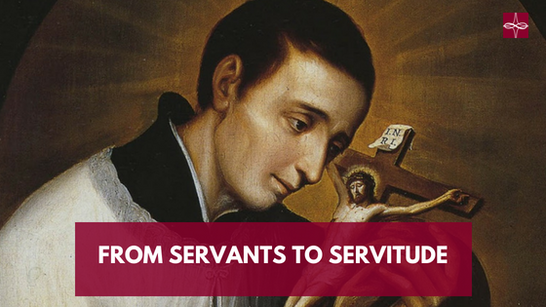
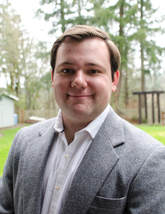
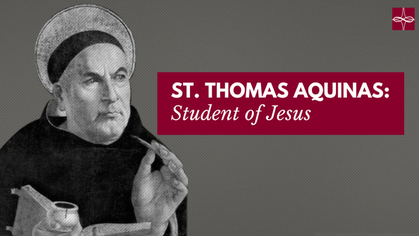
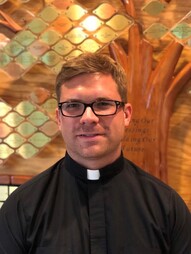



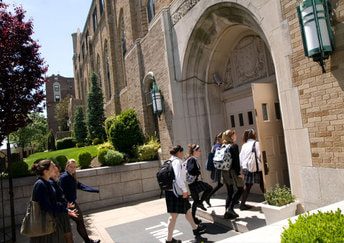
 RSS Feed
RSS Feed